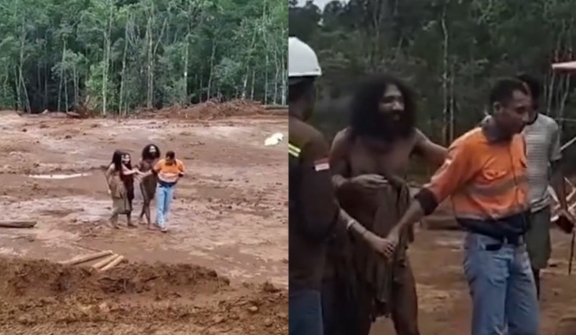
An isolated tribe, known as the Hongana Manyawa, has been observed desperately begging for food as their ancestral lands face destruction by mining activities.
This distressing situation highlights the clash between indigenous communities and the mining industry, sparking debate on social media.
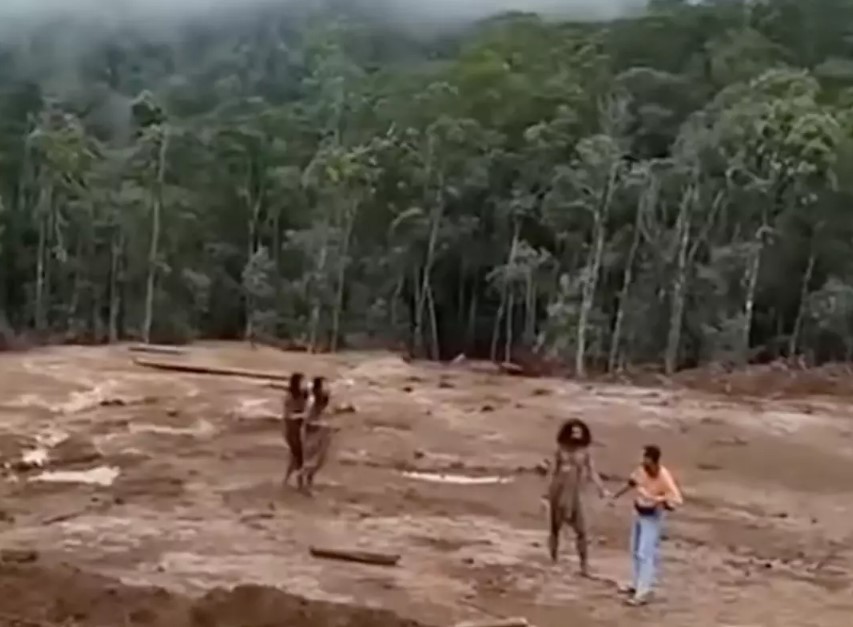
The Hongana Manyawa people have long maintained their isolation on Halmahera Island, located in the Maluku Islands of Indonesia.
However, the expansion of nickel mining operations has encroached upon their territories, leaving them with limited options for sustenance.
Recently, members of the tribe have been forced to leave the remnants of their forest home and approach miners for food, as their traditional hunting grounds have been devastated.
Estimates suggest that between 300 and 500 Hongana Manyawa individuals reside within the island's forests. Tragically, their lives are now at risk due to the destruction caused by mining companies.
Large portions of the rainforest have been allocated for mining purposes, despite the tribe's efforts to resist these encroachments.
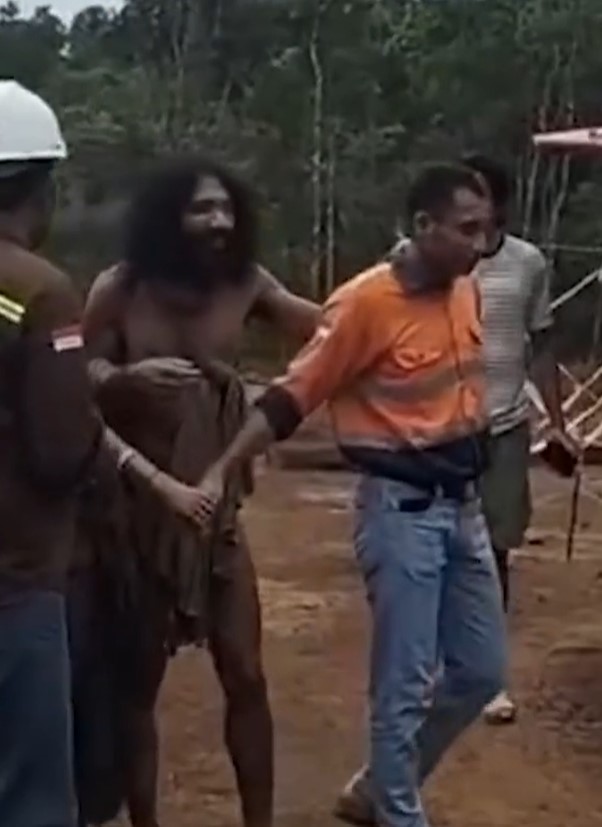
Shocking footage captures their courageous attempts to confront bulldozers, demonstrating their determination to protect their land.
Survival International, an organization advocating for indigenous rights, has shared footage revealing members of the tribe making contact with miners in a desperate plea for food.
The fact that the Hongana Manyawa tribe is being forced to interact with outsiders poses a great risk to their well-being. They are vulnerable to diseases because they have no immunity.
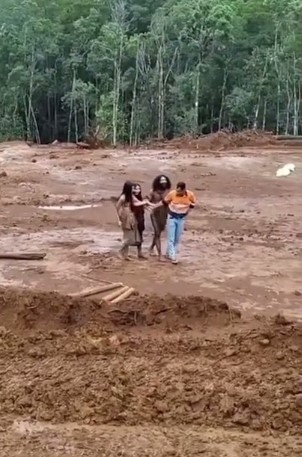
The situation has prompted calls for urgent action to protect the Hongana Manyawa tribe.
Indonesia's Senate Leader, AA LaNyalla Mahmud Mattalitti, has emphasized the need for immediate government intervention to safeguard these indigenous communities.
Referring to the nation's laws, which acknowledge the rights of native tribes, he urges all businesses operating there to guarantee that their actions do not uproot or cause harm to the nearby communities, especially the indigenous tribes that rely on the forest.
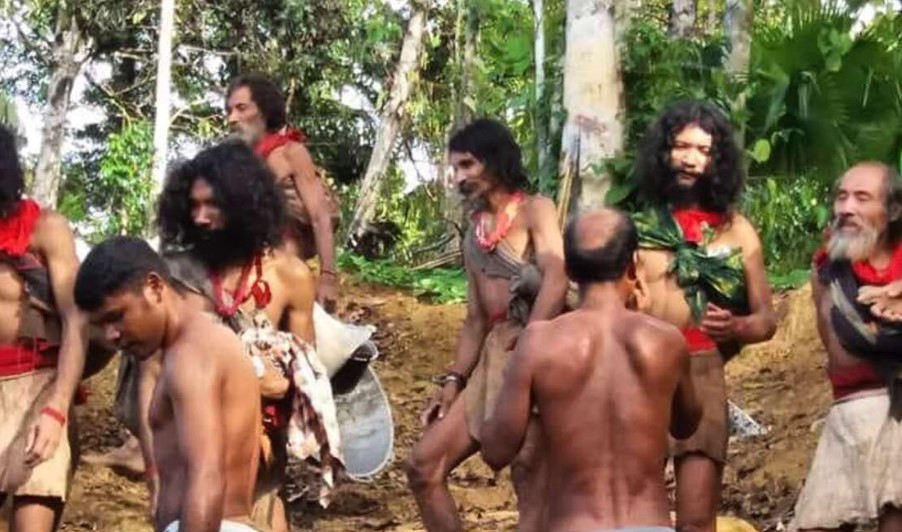
Caroline Pearce, who leads Survival International, praises the Senate Leader's request for action and recognizes how crucial it is for the Hongana Manyawa people.
Pearce asserts that the only viable solution lies in the protection of their ancestral territories, free from mining and other destructive developments.
She calls upon mining companies, including Eramet, to follow international law and refrain from mining activities in these territories without the consent of the indigenous communities.
The survival of this secluded community, with its valuable cultural traditions, relies on the combined actions of governments, international organizations, and mining companies.
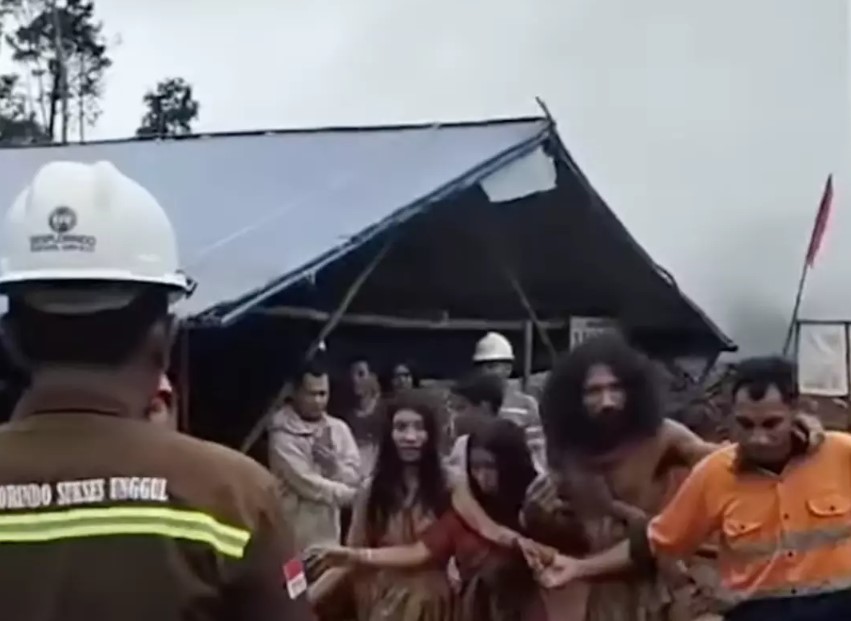
This tribe is known as the Sentinelese and they reside on an island within the Andaman and Nicobar Islands in the Indian Ocean.
They have chosen to live in complete isolation from the outside world and harbor strong hostility towards those who try to enter their territory.
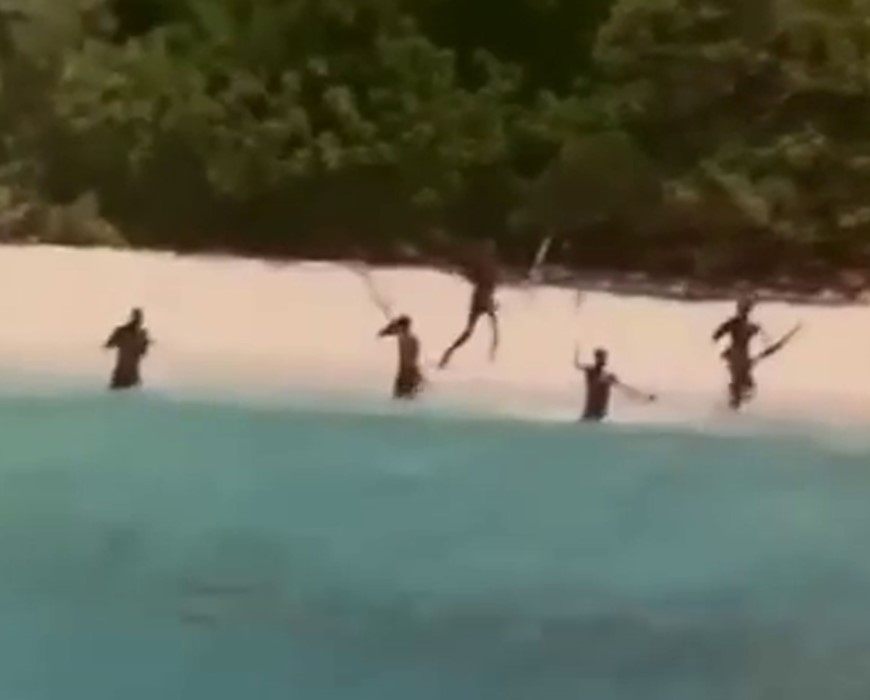
When strangers come near, they respond with anger and hostility, sometimes leading to violent confrontations.
Their island, North Sentinel, is roughly equivalent in size to Manhattan, but no one is allowed to visit.

A young man named John Allen Chau attempted to approach them to spread the Christian faith. However, the Sentinelese did not welcome him and shot arrows to warn him to stay away.
Despite receiving the warning, Chau did not give up and made a third attempt to reach the island, resulting in his unfortunate death.




